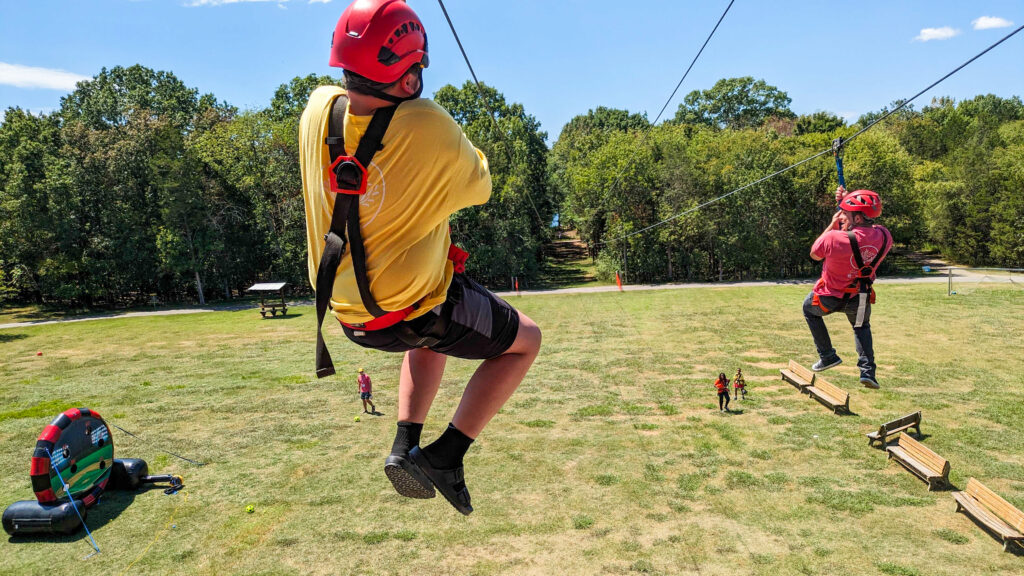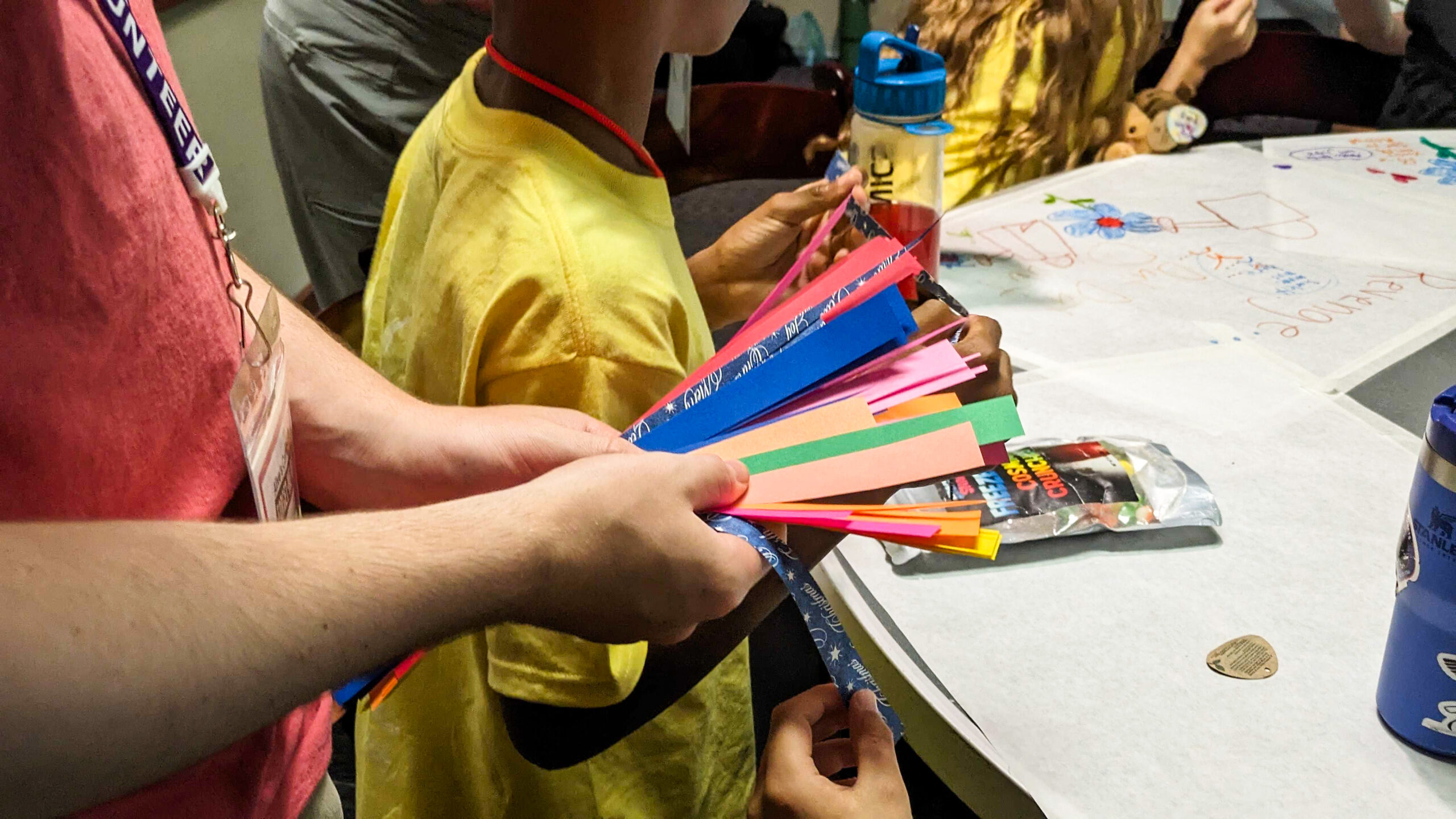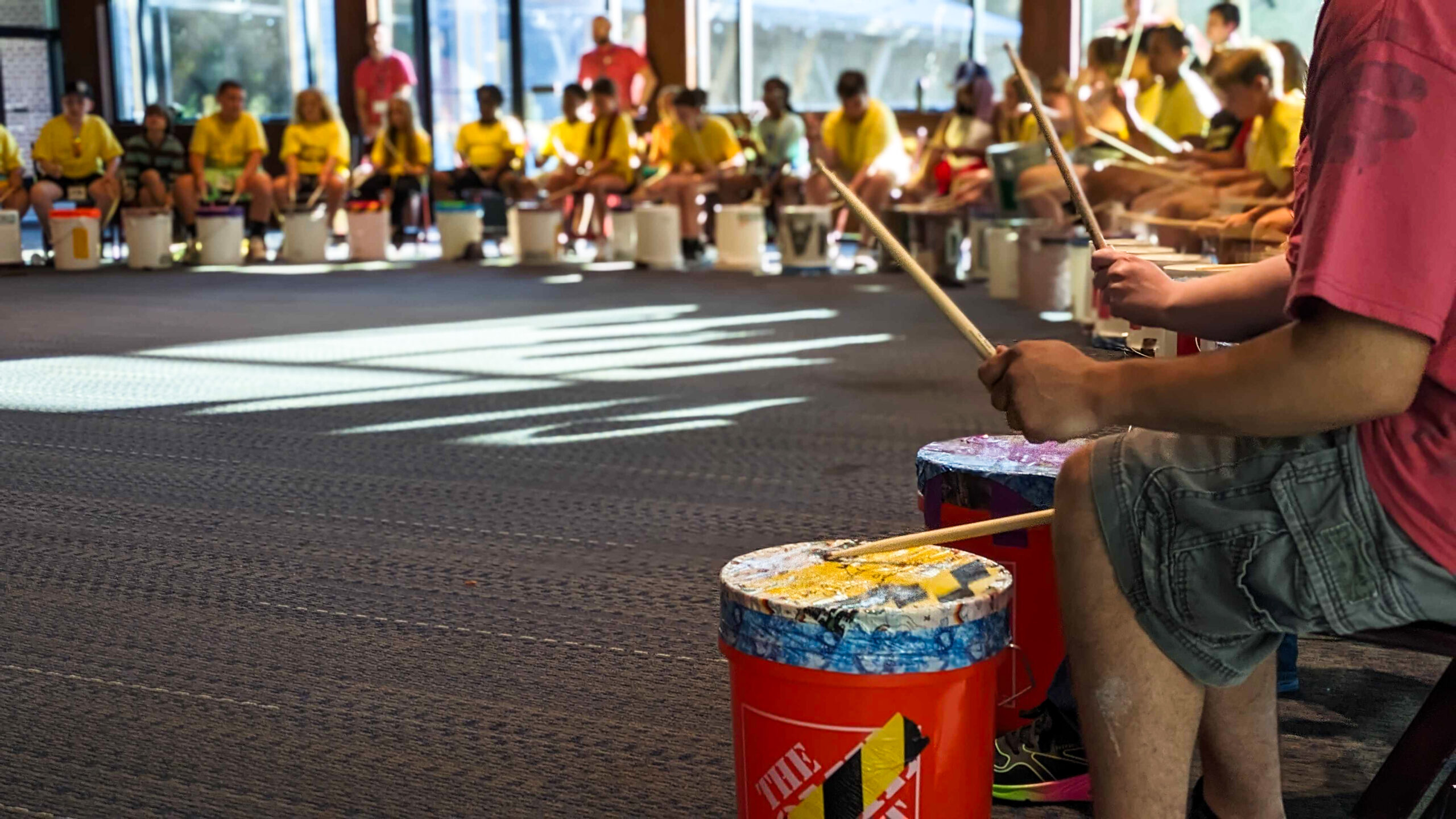
At a sprawling campus on the shore of Percy Priest Lake, dozens of children whizzed down zip lines and bounced on a giant inflatable. They splashed and ate popsicles at a small water park. As an outsider, you’d never know that each of these campers was mourning the death of a loved one.
Each year, Alive Hospice holds Camp Forget-Me-Not to support children through their grief. It offers an environment where kids can have fun, make new friends, and share freely about their loss with other kids who understand what they’re going through.
“Imagine if you walked in a room, and let’s say you have a big pimple on your forehead,” camper Ruby said. “And then you walk in the room with a whole bunch of other people with big pimples on their forehead. And then that’s kind of how it felt.” Ruby lost her mom last year. She said at this camp, she doesn’t have to explain herself to her peers. And other campers felt the same.
More: How this camp for kids who stutter builds confidence and connections
“We can talk deeper about going into our feelings, and I like that,” said eight-year-old Griffin, who lost his baby brother. He, too, appreciated being in a group where everybody else was navigating grief. “That means a lot to me.”
While grief is often seen as somber, children at this camp transitioned multiple times throughout the day from playing to serious conversations and back to fun activities.
 Alexis Marshall WPLN News
Alexis Marshall WPLN NewsCamp Forget-Me-Not attendees took a dip in the pool at the YMCA’s Camp Widgiwagan campus.
Adults “tend to kind of judge ourselves a little bit … ‘What are the people going to think if I’m out playing or whatever?’ But children just say what they think,” said Sandra Connell Jones, who has worked this camp since it started more than 30 years ago. “It’s beautiful. And if we grieved that way as adults, we’d probably be better off.”
But the death of a loved one is difficult at any age. Volunteers and grief counselors at the camp helped facilitate conversations for children, many of whom lost parents, grandparents or siblings.
For Jones’ group, those conversations invited campers to share questions they had about death: Why do people have to die? What’s it like to die? Can we talk to them after they’re gone?
The sessions also got into the complicated feelings that grief brings up. Jones read a book aloud to campers in which a turtle’s best friend, a hare named Hurdle, died, and a big empty hole took her place.
The turtle got angry, bargained, and wept, trying to get the hole to go away. Eventually, it learned to fill the hole with memories.
 Alexis Marshall WPLN News
Alexis Marshall WPLN NewsA volunteer passed out paper strips on which campers wrote the name of their loved one. Then they rolled them up with Mod Podge into a bead to become part of a bracelet.
Later in the evening, campers got a chance to share share their own memories of loved ones with one another. A small group of second and third graders sat in a circle on the floor with their group leaders. A grief counselor held a stack of laminated photos. Each was an image of a loved one who had died. One at a time, the counselor held up a picture for somebody in the circle to claim.
Sandra went first to demonstrate, gently passing around a picture of her mother and cousin, and telling campers how much she missed them.
Then, it was the kids’ turn. Once they got their picture, they decided how much or how little they wanted to share.
Some of them hung their photos on the classroom wall to go on display outside. Others clung tightly to their pictures. The space became quiet, somber and intimate. The grief counselors assured campers that whatever they chose to do was okay and completely up to them.
Some preferred to keep their memories private. Others shared about some of their favorite times with departed loved ones. Before camper Annabelle’s father died, he would take her and her sister on fun outings.
“He would always take us to a place that was, like, really special, like Dave and Busters or Chipotle or even Chick-fil-A,” Annabelle said. She shared the memory with smile and a giggle.
 Alexis Marshall WPLN News
Alexis Marshall WPLN NewsCampers learned how to infuse their memories of loved ones into a drum beat.
The camp also equips children with tools to channel their feelings even after they go home. Percussionist Josh Robinson led a drum circle with dozens campers, showing them how to infuse their memories of a loved one into a beat. He asked campers to come up with a word or phrase that reminded them of the person in their life who died. Children offered up “kind-hearted,” “beach,” “Tennessee Vols,” and many more.
Robinson picked a handful of words — pretty, musical, loving, and cook — to turn into a rhythm that he taught campers to chant, then drum.
With five-gallon buckets and drum sticks, children played the beat in sync. Inspired by the memories of those who have died, the beat filled up the room and took on a life of its own.

